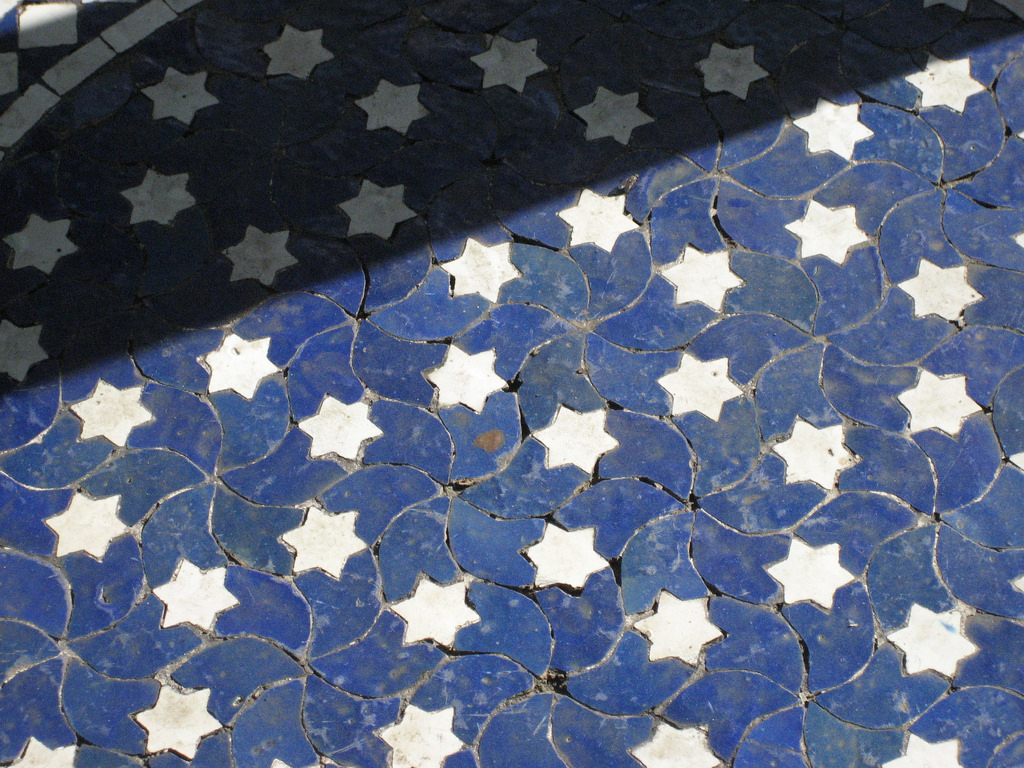Jew-ish
On belonging.

Image: Eugene Peretz via Flickr
I remember my mother’s last Christmas tree. I was eleven, and she was converting to Judaism the following summer: abandoning her native Catholicism to become a fully fledged member of the tribe in time to stand on the bima with me (and my Jewish father) at my Bat Mitzvah.
At that point, it had been a while since we’d bothered to put up a tree in the house—usually, we celebrated Hanukkah at home in Los Angeles and then went to do Christmas with her relatives in Phoenix, evading the question of a so-called Hanukkah bush entirely. We had friends who did that kind of thing, liberal, Reform Jews who didn’t see the harm in helping themselves to what they saw as a charming and basically secular tradition, but my mother felt strongly about it. For her, deciding to become a Jew meant being willing to give up what everyone else does.
Iconoclasm and insularity run deep in Jewish culture. I mean, we call ourselves The Chosen People. The Hebrew word for holiness is kadosh, which comes from the concept of separation. Long before pseudo-spiritual white people co-opted the word to describe folks who share their particular wellness predilections, we were a tribe. We are a minority almost everywhere we live. We have a long history of being persecuted, and we feel safer when the windows are closed and doors are locked, and no one but us is in the room.
But that also means we get very specific about who is us, and who is other. And technically, despite my mother’s conversion, despite my Bat Mitzvah, despite the fact that I’ve spent years working in the Jewish community professionally, despite the fact that I’ve been a practicing Jew since kindergarten, that I’ve never known myself as anything else, most Jews do not accept me as one of their own.
There are three main sects of modern Judaism: Reform, Conservative, and Orthodox. Of those three, only the Reform movement accepts patrilineal descent to qualify as a child as Jewish—which is why well-meaning goyim, eager to show off their knowledge of Jewish trivia, are always saying, “Oh, so you’re not really Jewish, right?” when I tell them that my mother was, at one time, a Christian. I understand that they don’t really mean to suggest that I don’t belong, but the question stings, in large part because I hear it from other Jews, too. Even among my liberal Jewish peers, anxiety about intermarriage and what it means remains surprisingly prevalent.
It’s complicated to be from a mixed background, and even more so when the affiliation in question is as invisible, mutable and debatable as religious identity. I’ve lived more than half my life now in a family that both is and is not fully Jewish. I experience myself as a Jewish person, but a big part of being Jewish is allowed to belong, and there are so many Jewish spaces where I do not, and will never, be granted that privilege.
This conversation gets particularly tricky in December, which has become a desperately overdetermined time of year. Amid a deluge of Christmas cheer, Jews are expected to insist on happy holidays with goyim, and to remind one another that Hanukkah was supposed to be a minor holiday that doesn’t even involve presents. The liberal value of resisting capitalism combines with the Jewish impulse towards separatism to create an atmosphere that finds anyone who’s willing to engage with Christmas automatically suspect.
Which is particularly hard when one half of your family celebrates Christmas not because they’re assimilated Americans, but because it’s a part of their religious tradition. Growing up I felt guilty for having it both ways. It’s the perpetual mixed kid dilemma: celebrating Christmas reminded me that I wasn’t the right kind of Jew—but it didn’t particularly make me feel like I fit in with the rest of the country, either. Too much of one, not enough of the other. Twice the presents. All of the guilt.
When my mom’s mom—my last surviving grandparent—moved to a nursing home in Los Angeles in 2010, Christmas came back to our house. My mother would make a fancy lunch and we’d eat it on her mother’s china with the good silver. My grandmother would drink a bourbon and soda on the front porch and then nap on the couch while the rest of us drank beer and watched the Lakers.
My grandmother died in 2013, and with her went our last remaining claim to the holiday. Sometimes we do lunch together though, still, and basketball and beer. Mostly, though, what we do now is go to the desert.
Instead of driving all the way out to Phoenix, we stop in Joshua Tree or Desert Hot Springs, somewhere we can hike and soak and go to bed early. We exchange presents and go out for a nice dinner. We do something on Christmas. I don’t know if that’s the same thing as doing something for Christmas, and mostly I’ve stopped caring.
We are Jewish, but that’s not all we are. We’re only ever going to be this kind of Jew, this weird half, made-up thing that we’ve cobbled together because for us, it makes sense. It is not who we’re supposed to be, but who we actually are.
And you know what? Fuck it. I’ll be a fake Jew if it means I get to spend more holidays with my real family, celebrating the fact that we don’t have to ask permission from anyone to belong with one another.
FAKES is The Awl’s year-end holiday series for 2017. You can read the whole collection here.
